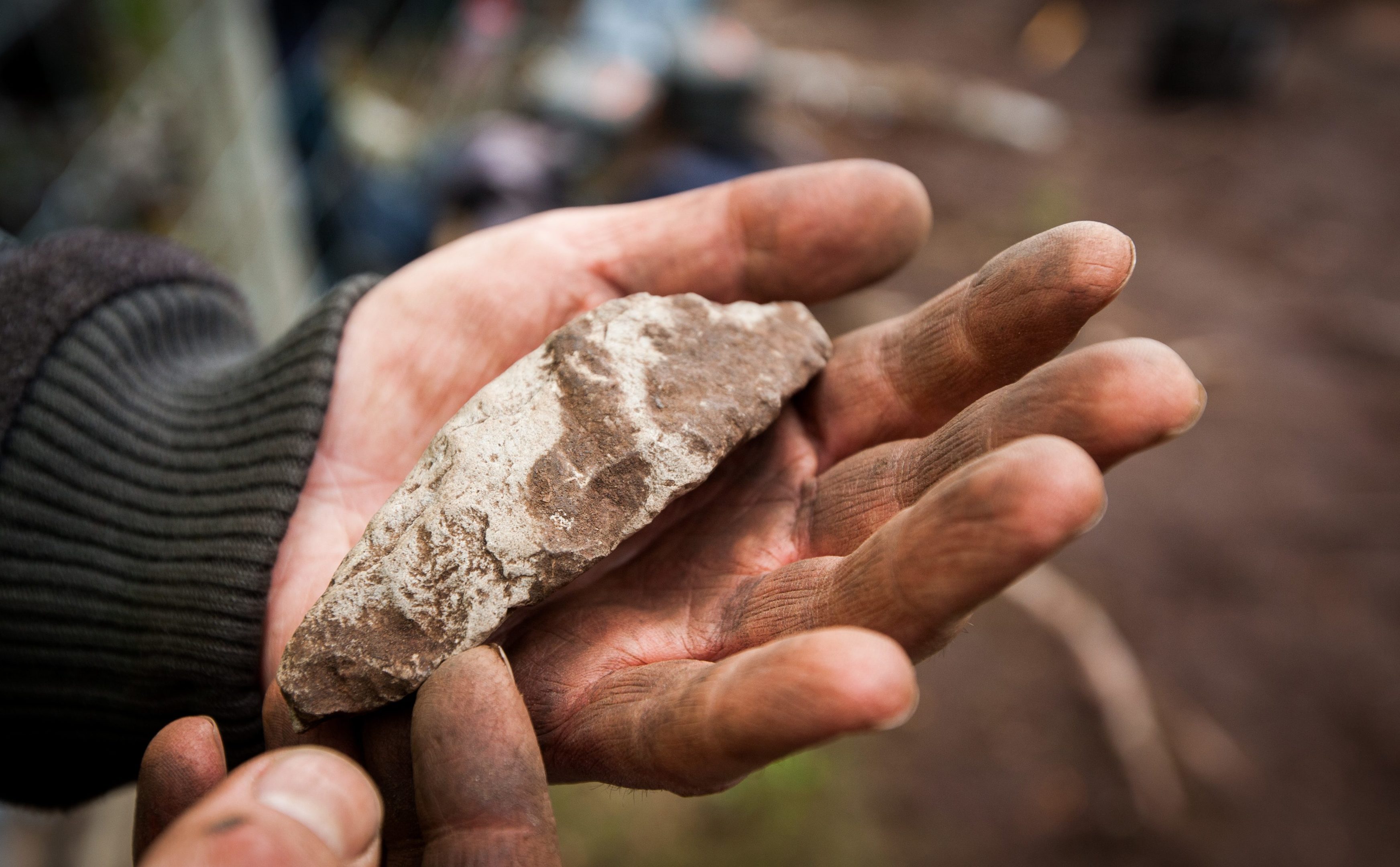Mystery surrounds an amazing ancient discovery at an archaeological dig in Fife.
Experts were hoping to uncover secrets of Falkland’s medieval past over the weekend — and they were not disappointed.
A “curious” stone which may be a prehistoric tool has come to light.
The find was made during the third and final Living Lomonds community archaeology big dig on Falkland Estate which was organised to investigate the fascinating heritage of royal medieval deer hunting.
Before the dig, Living Lomonds archaeologist Dr Oliver O’Grady said the team had a site with a real mystery to unravel and a wonderful setting to work in at Falkland Estate.
The focus of this year’s community dig was on the deer park pale, a large bank with a ditch and wooden palisade on top which would have enclosed the park, keeping the deer inside.
The other area of attention is known as the Chancefield Trenches, which are thought to have been used in trapping and sorting deer for the medieval park, but no one knows for sure.
Some preliminary work has been carried out at Cash Wood near the Pillars of Hercules, where a ditch and bank were excavated with finds including two pieces of late medieval pottery along with remains of a setting for a wooden fence.
It is believed that these features were part of an enclosure for the royal deer park at Falkland during the 15th and 16th Centuries.
It was from the excavations at the Chancefield Trenches that the worked stone was unearthed.
Dr O’Grady said it was around 10cm long and had been worked into a roughly pointed shape with three smooth faces.
“There is evidence of working along the edges of the stone in the form of several small convex facets.
“Theories abound with the archaeologists as to what this could be, but the leading theory is it is some kind of prehistoric stone tool, such as a simple stone hammer.”
He said it was still not yet entirely clear what the find meant for the significance of the site, but as a piece of prehistoric worked flint has also been discovered the Trenches may, in fact, be very ancient in origin.










